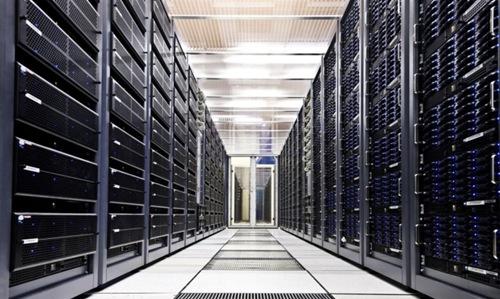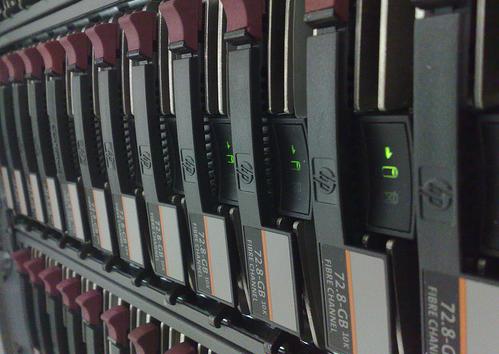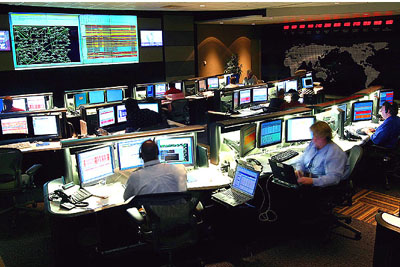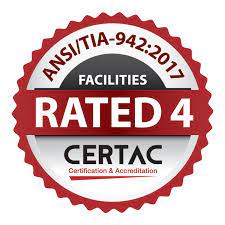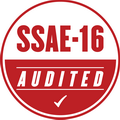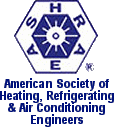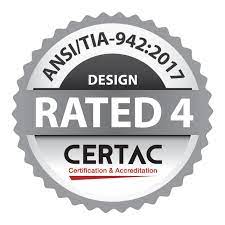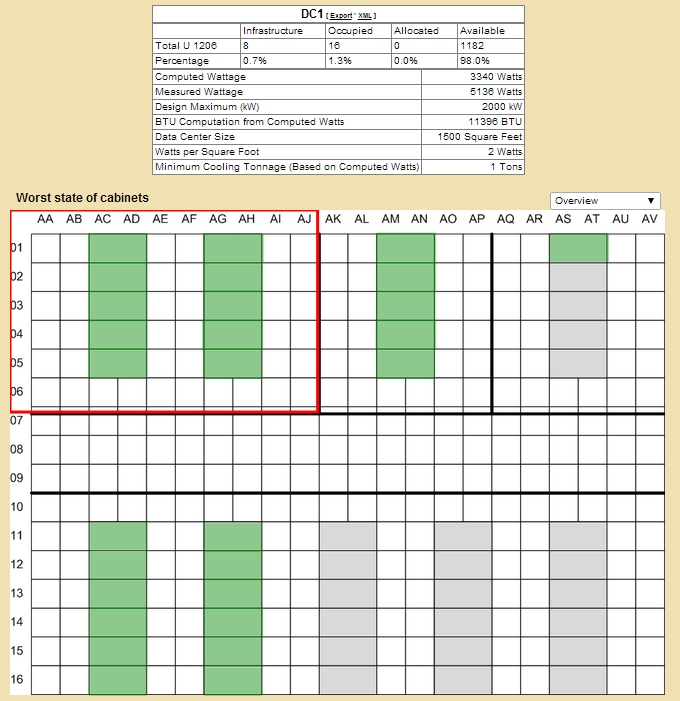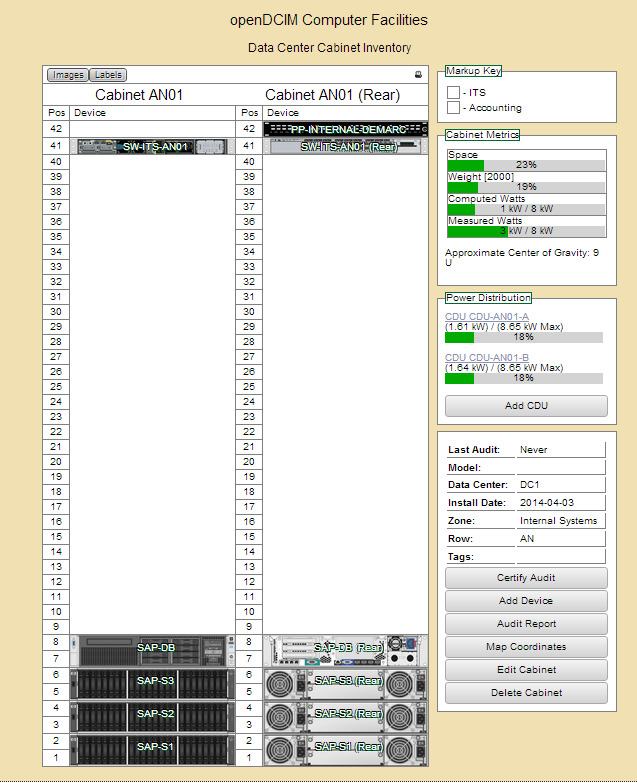Data Center Infrastructure and Design Management Maintenance
!! เมื่อถนนทุกสายมุ่งเข้าสู่ความเป็นมาตรฐานสากล Data Center ของท่านมีความพร้อมเข้าสู่มาตรฐานสากลที่หลากหลายแล้วหรือยัง? !!
หลักสูตรเดียวเท่านั้นที่สมบูรณ์แบบที่สุด สำหรับ Data Center ทุกประเภท ทุกประเภททุกขนาด พร้อมการบำรุงรักษา การตรวจวัด ทดสอบด้วยเครื่องมือจริง ทางปฏิบัติ ตามมาตรฐานสากล
เป็นหลักสูตรภาคทฤษฎีและปฏิบัติ สำหรับท่านที่ต้องทำงานเกี่ยวกับการดูแลระบบเครือข่ายขนาดกลางและขนาดใหญ่ ที่ประกอบด้วยเครือข่ายและ Server ขนาดใหญ่และมีจำนวนมาก ที่ประกอบขึ้นเป็นคลังข้อมูล หรือศูนย์ให้บริการระบบเครือข่าย หรือให้บริการโครงข่าย รวมทั้งอินเทอร์เน็ต เหมาะสำหรับศูนย์รวมเครือข่าย ที่ให้บริการข้อมูล หรือเชื่อมต่อระหว่างสาขาต่างๆจำนวนมาก หรือ ศูนย์ให้บริการ Hosting Server แบบ Collocation รวมทั้ง ISP ตลอดจน (Data Center หรือ Server Room สำหรับหน่วยงานต่างๆของรัฐและเอกชน หลักสูตรนี้นอกจากจะช่วยให้ท่านมีเข้าใจโครงสร้าง ระบบการทำงาน อุปกรณ์จัดเก็บข้อมูลภายใต้เทคโนโลยีต่างๆ ตลอดจนการเชื่อมต่อระบบโครงข่ายและเครือข่ายแล้ว ยังทำให้ท่านมีความรู้และวิธีปฏิบัติงานตามมาตรฐาน EIA/TIA-942B (ล่าสุด) มาตรฐาน TIA-606B มาตรฐาน ANSI/BISCI 002-2019 มาตรฐาน ASHRAE (มาตรฐานระบบปรับอากาศระบายความร้อน) มาตรฐาน EN-506000-1 Series มาตรฐาน Uptime Institute (มาตรฐาน Redundancy Tier1-Tier4) มาตรฐานการตรวจสอบความปลอดภัย SAS-70 ISO-27001 มาตรฐาน EIA/TIA 568-1-3 มาตรฐาน EIA/TIA 569D มาตรฐาน EIA/TIA-J-607 (มาตรฐานการกราวด์สัญญาณ) มาตรฐานห้องต่างๆใน Data Center สำคัญท่านจะได้เรียนวิธีการบำรุงรักษา Maintenance ด้วยวิธีการและเครื่องมือต่างๆของจริง แบบ Workshop ใช้งานจริง
ภายใต้หลักสูตรนี้จะช่วยให้ท่านสามารถเฝ้าดูการทำงานของ Server และเครือข่ายเพื่อแก้ปัญหากรณีเครือข่ายล่มหรือเครือข่ายแออัด ตลอดจน Traffic ที่ใช้ Bandwidth สูง ตลอดจนเฝ้าดูความปลอดภัยของระบบเครือข่ายที่ให้บริการและศูนย์ข้อมูล หลักสูตรนี้จะช่วยให้ท่านสามารถบริหาร Bandwidth และให้บริการเครือข่ายรวมทั้ง รักษาความปลอดภัยแก่ลูกค้าได้อย่างมีประสิทธิภาพ
จุดประสงค์
เพื่อให้ผู้เข้าอบรม มีความรู้เกี่ยวกับการดูแลศูนย์เครือข่ายในองค์กรอย่างลึกซึ้ง
เพื่อให้ผู้เข้าอบรมที่ดูแลระบบเครือข่ายบริการแบบสาธารณะ มีระบบการให้บริการแก่ลูกค้า ตามมาตรฐานสากล
เพื่อให้ผู้เข้ารับการอบรมมีความรู้เกี่ยวกับการบริหารจัดการโครงสร้างพื้นฐาน (Infrastructure) ของ Data Center ตามมาตรฐานของ Data Center ชั้นนำในสหรัฐและยุโรป
สามารถวางแผนติดตั้ง ประสานงานร่วมกับบริษัทติดตั้ง Data center ให้กับท่านได้เป็นอย่างดี
สามารถวางแผนปรับปรุง ขยาย Data Center ของท่านได้
เพื่อให้ผู้เข้ารับการอบรม มีความรู้ในรายละเอียดมาตรฐาน EIA/TIA-942B Uptime Institute ซึ่งเป็นมาตรฐาน การเดินสายสัญญาณ และออกแบบติดตั้ง Data Center รวมทั้งการ Audit ความปลอดภัย
|
บริหารระบบเครือข่ายและ Server ขนาดใหญ่ |
บริหารจัดการระบบจัดเก็บข้อมูล SAN |
เพื่อให้ผู้เข้ารับการอบรมสามารถติดตั้ง และดูแลอุปกรณ์จัดเก็บข้อมูล ตามมาตรฐานต่างๆ
เพื่อให้ผู้เข้ารับการอบรมสามารถใช้ซอฟแวร์เฝ้าดูการทำงานของศูนย์เครือข่ายและคลังข้อมูล รวมทั้งสามารถจัดสร้างระบบเตือนภัยได้อย่างมีประสิทธิภาพ ในเชิงปฏิบัติ
เพื่อให้ผู้เข้าอบรม มีทักษะความรู้ในด้านการใช้เครื่องมือตรวจวัด ระบบต่างๆ และจุดต่างๆ ออย่างถูกต้องเหมาะสมตามมาตรฐานสากล
|
บริหารจัดการเครือข่าย และการให้บริการเครือข่าย |
เรียนรู้มาตรฐาน Data Center จากสถาบันต่างๆ |
ผู้ที่เหมาะจะเข้ารับการอบรมในหลักสูตรนี้
ผู้บริหารจัดการระบบเครือข่ายขนาดกลางและขนาดใหญ่
ผู้ดูแลระบบเครือข่ายและ Server ในองค์กรขนาดกลางและขนาดใหญ่
ผู้ปฏิบัติงานในศูนย์ให้บริการระบบเครือข่ายสาธารณะ เช่น ISP หรือ NSP
ผู้ให้บริการวางระบบและติดตั้งระบบเครือข่ายขนาดใหญ่
ผู้จัดจำหน่วยอุปกรณ์จัดเก็บข้อมูล และอุปกรณ์เครือข่ายระดับวิสาหกิจ
ผู้รับเหมาออกแบบก่อสร้างอาคารที่เกี่ยวข้องกับ Data Center
Professional Operations Managers
Data Center Facility Managers
Consultants
Network Architects
IT and Facility Engineers Data Center Sustainability Executives
ภาคปฏิบัติในหลักสูตรนี้
ใช้ OpenDSIM เพื่อบริหารจัดการ Data Center
|
เหตุใดท่านควรเรียนหลักสูตร Data Center
ท่านจะมีความรู้ความเข้าใจมาตรฐานของ Tier ต่างๆ ของ Data Center
ท่านจะมีความรู้อย่างละเอียดเกี่ยวกับมาตรฐานของ Uptime /TIA-942B / BICI /ASHRAE ซึ่งเป็นมาตรฐานสากล
ท่านจะมีความรู้ ในการดูแลและเฝ้าดูสภาพแวดล้อมของ Data Center ให้เป็นไปตามมาตรฐานสากล
ท่านจะมีความรู้เกี่ยวกับ การบริหารจัดการศูนย์ปฏิบัติงานระบบเครือข่าย (Network Operating Center (NOC)
ท่านจะมีความรู้เกี่ยวกับ การวางแผนวิธีการกู้คืนระบบ (Disaster Recovery) เมื่อเกิดเหตุขัดข้อง
ท่านจะได้เรียนรู้ มาตรฐานของอุปกรณ์ต่างๆที่เกี่ยวข้องกับ Data Center
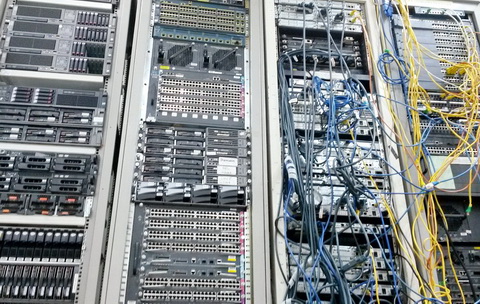
ภาพ แสดงอุปกรณ์เครือข่ายและ Server ในห้องเรียน
หลักสูตรนี้จะช่วยให้ท่าน สามารถเฝ้าดูการทำงานของกลุ่ม Server และอุปกรณ์เครือข่าย ด้วยเครื่องมือทาง Software ที่มีประสิทธิภาพ
ท่านสามารถเฝ้าดูความผิดปกติของกระแสข้อมูลข่าวสาร และแยกแยะระหว่างข้อมูลข่าวสารปกติ กับข้อมูลข่าวสารที่ไม่ต้องการ เช่น Virus และ Malwareได้
ท่านจะมีความรู้ในการติดตั้งและจัดวางตู้ Rack รวมทั้งวิธีการคำนวณการกินกระแสไฟของตู้ Rack และห้อง Server
ท่านจะมีความรู้ในการคำนวณหากำลัง BTU ของระบบปรับอากาศในห้อง Server และ Data Center
ท่านมีความเข้าใจในมาตรฐานการดูแล Data Center อย่างลึกซึ้ง
ท่านสามารถออกแบบ และวางแผนการขยาย เครือข่ายและ Server ภายใน Data Center ได้อย่างดี
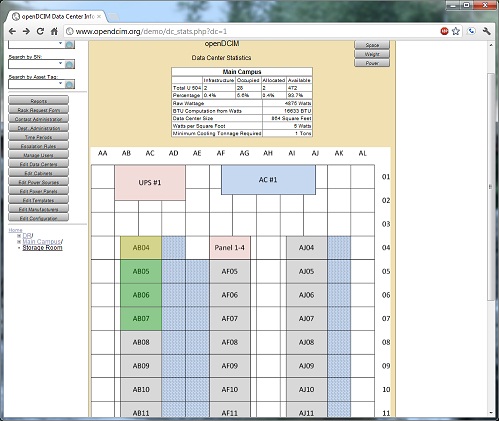
ภาคปฏิบัติการใช้ OpenDCIM เพื่อตรวจสอบและบริหารจัดการ Data Center
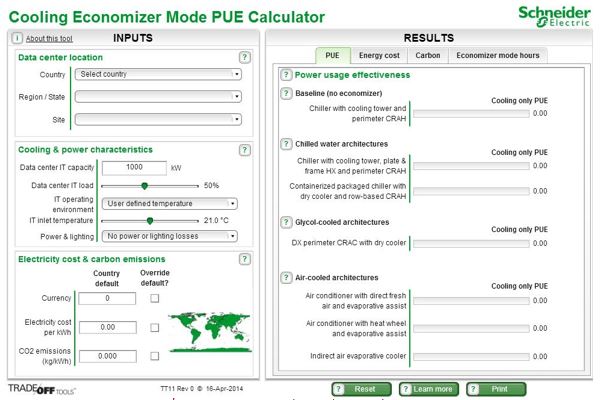 |
 |
อุปกรณ์ที่ใช้อบรมในหลักสูตรนี้
ซอฟแวร์ที่ใช้บริหารจัดการ Data Center และ Network Operation Center
อุปกรณ์เครือข่าย เช่น Switches / Router ในระดับ Enterprise ของ Cisco
Software ที่ใช้ Monitoring ระบบเครือข่าย และ Server
ระยะเวลาของการอบรม : 3 วัน
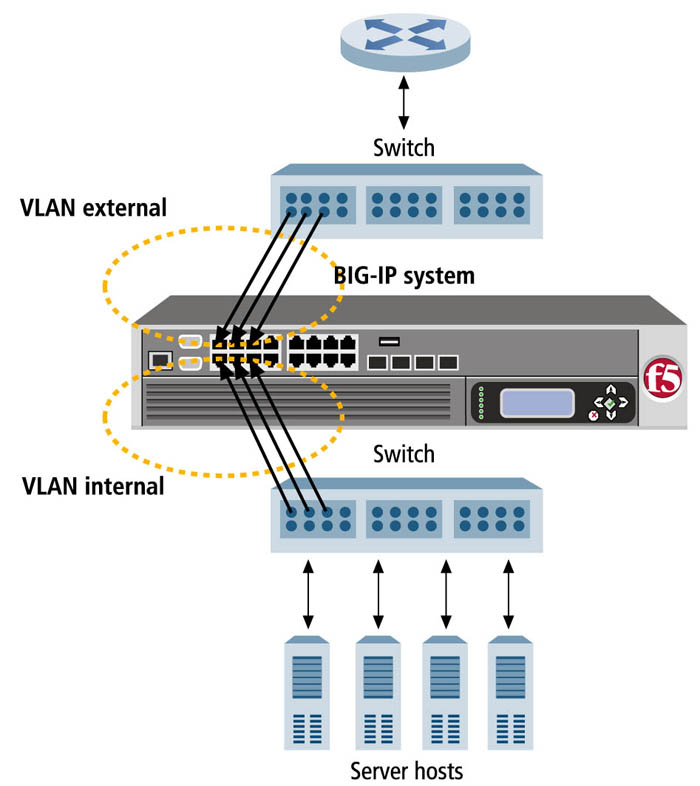
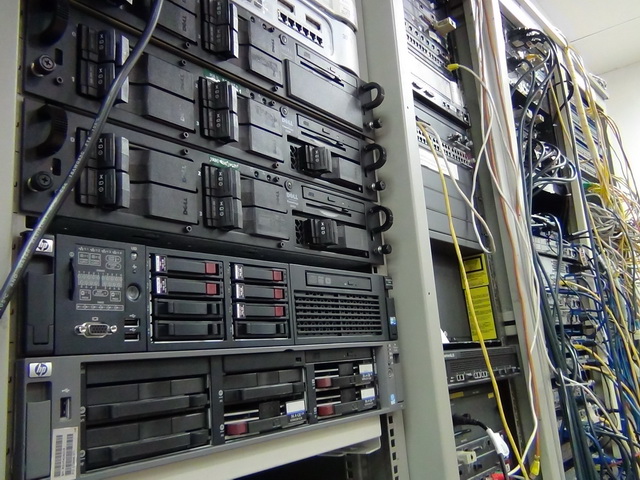
รายละเอียดหลักสูตร
1. Data Center Design - Strategic Planning, Design, Construction, and Operations
1.1 Relations of Data Center Spaces to other building spaces
1.2 Availability and security
1.3 Uptime Institute Tier Standard Operational Sustainability
2. Telecommunication and Cabling Standard
2.1 Traditional Tier Design
2.2 Spine and Leaf Design
2.3 3-Tier and Multi-Tier Model
2.4 Top of Rack Design
2.5 End of Row Design
3. TIA-942B Data Center Standard
3.1 Data Center Cabling System Infrastructure
3.2 Data Center Telecommunication Spaces and Related Topologies
3.3 Data Center Structure
3.4 Energy Efficient Design
3.5 Common Requirement for Computer Rooms and Entrance Rooms
3.6 Main Distribution Area (MDA) Facility Requirement and Cabling Design
3.7 Intermediated Distribution Area (IDA) Facility Requirement and Cabling Design
3.8 Horizontal Distribution Area (HDA) Facility Requirement and Cabling Design
3.9 Zone Distribution Area (ZDA) Facility Requirement and Cabling Design
3.10 Equipment Distribution Area (EDA) Facility Requirement and Cabling Design
3.11 Telecommunication Room
3.12 Data Center Support Area
3.13 Cabinets and Racks
4. TIA-942B Data Center Cabling System Design
4.1 Horizontal Cabling
4.2 Backbone Cabling
4.3 Centralized Optical Fiber Cabling
4.4 Cabling Transmission Performance and test Requirements
4.5 Data Center Pathways
4.6 Security for Data Center Cabling
4.7 Routing of Telecommunications Cables
4.8 Telecommunication Entrance Pathways
4.9 Access Floor Systems
4.10 Cable Trays Specification
4.11 Cable Tray in access Floor Systems
4.12 Overhead Cable Trays
5. TIA-942B Common Requirements for Computer Rooms and Entrance Room
5.1 Architectural Design
5.2 Environmental Design
5.3 Electrical Design
5.4 Fire Protection
5.5 Computer Room Requirement
5.6 Location and Environment Design - HVAC
5.7 Entrance Room Requirement
5.8 Entrance Conduit Routing under access floor
5.9 Building Entrance Terminal
6. TIA-942B Data Center Cabling Installation Requirement
6.1 Cabling Transmission Performance Requirements
6.1.1 Cable Fire Rating Requirements
6.2 Horizontal Cabling
6.2.1 Topology and Horizontal Cabling Length
6.2.2 Direct Attach Cabling
6.2.3 Recognized Media
6.2.4 Optical Fiber Connectors
6.3 Backbone Cabling
6.3.1 Topology and Redundant Cabling Topologies
6.3.2 Recognized Media and Cabling Length
6.3.3 Optical Fiber Connectors Standard
6.4 Grouding and Bonding
6.5 Firestopping
7. ANSI/BICSI 002-2019 Standard Data Center Design
7.1 Site Selection
7.2 Natural Hazards
7.3 Natural Environment
7.4 Site Access and Location
7.5 Utility Services
7.6 Regurations (Local Regional Contry)
7.7 Data Center Space Planning
7.8 Overall Facility Capacity
7.9 Power Systems
7.10 Cooling Capacity
7.11 Data Center Support Spaces
7.12 Placement of Equipment When using Access Floors
7.13 Computer Room
7.14 Design for Performance
8. Architectural
8.1 Facilities Planning
8.2 General Design Concepts
8.3 General Paths of Access
8.4 Planning Detail
8.5 Construction Considerations
9. Structural
9.1 Building Code Compliance and Coordination
9.2 Impact of site Location on Structural Loading
9.3 Structural Concerns specific to Data Center Design
10. Electrical Systems
10.1 Utility Services
10.2 Electrical Distribution
10.3 Mechanical Equipment Support
10.4 Uninteruptible Power Supply (UPS) Systems
10.5 Standby and Emergency Power Systems
10.6 Automation and Control
10.7 Lighting
10.8 Bonding Grounding Lighting Protection and Surge Protection
10.9 Label and Signage
10.10 Test and Quality Assurance
11. Mechanical Systems
11.1 Selection of Heat Rejection Systems
11.2 Heat Rejection and Computer room Cooling Technologies
11.3 Mechanical Class Rating
11.4 Air Flow Management
11.5 Ventilation (Outside Air)
11.6 Mecanical Equipment (Design and Operation) Recommendations
12. Fire Protection
12.1 General Requirements and Recommendations
12.2 Walls Floor and Ceiling
12.3 Aisle Containment
12.4 Handheld Fire Extinguisher
12.5 Fire Detection
12.6 Fire Suppression
12.7 Fire Alarm Systems
12.8 Labeling and Signage
12.9 Testing and Quality Assurance
13. Security
13.1 Design Data Center Security Plan
13.2 Building Site Considerations
13.3 Data Center Elements
13.4 Building Shell
13.5 Computer Room and Critical Facility Areas Special Considerations
13.6 Disaster Discovery Plan
14. Data Center Maintenance
14.1 Maintenance Plan
14.2 System Maintenance
15. ASHRAE TC9.9 Data Center Power Equipment Thermal Guidelines
16. Method for calculating cooling requirements in Data Center and Server rooms
17. 10 Solutions to Support Massively Installed Server Applications
18. Cooling Strategies for High Density Rack and Blade Server
19. How to calculate the size of the air conditioner in the server room
20. Standards for ventilation system in the Data Center
20.1 Ashare TC9.9 Air Conditioning and Temperature Control Standard ASHARE Thermal Guideline for Data Processing Environments
20.2 Refrigeration and air flow design
20.3 Best Practise for Troubleshooting Hot Spots
20.4 Technology for cooling
20.4.1 Cold Aisle Containment
20.4.2 Row-Cooled Cold Aisle Containment
20.4.3 Rack Air Containment
20.4.4 Row Cooled Hot Aisle Containment
20.4.5 Ducted Hot Aisle Containment
20.4.6 Ducted Rack
21. ANSI TIA 606-B Cable Labeling Standards
21.1 Labeling Standards for communication rooms and networks
21.2 Labeling Standards for Rack/Patch Panel Cabling
21.3 Labeling Standards for in Building Backbone cabling
21.4 Labeling Standards for inter-building Backbone
21.5 Labeling Standards for Jack and Connector
21.6 Labeling Standards for Firestopping and related devices
21.7 Labeling Standards for Grounding/Bonding systems
22. Environmental Control Standards within the Data Center
22.1 Optimum Temperature for Data Center
22.2 Relative humidity in Data Center
22.3 Static electricity
22.4 Air Conditioning system standards
22.5 Airflow planning methods
22.6 HVAC System Placement Standards
22.7 Air distribution standards
22.8 Floor slopes and airflow Standard
22.9 Equipment and Rack Placement Standards
23. Standard for environmental stewardship in the Data Center
23.1 Data Center Contamination Prevention Standards
23.2 Type of contamination and its source
23.3 วิธีการหลีกเลี่ยงการปนเปื้อน
23.4 Air filter system
24. Network and Server Monitoring Stadards(Hand-on)
24.1 Monitoring Checklist for the network
24.2 Monitoring Checklist for the Server
24.3 How to interpret information displayed on the screen for network and Server
25. How to maintain and maintain Data Center
25.1 Data Center Service Availability Checklist
25.2 Data and metric showing the availability of the data center
25.3 Maintenance items, equipment and network / servers systems in theData Center
25.4 Method for evaluating data center performnance according to international principles
26. Method for disaster recovery (Data Center Disaster Planning)
26.1 How to write the Business Continuity andDisaster Recovery Template
26.2 How to plan and manage Disaster Recovery
26.3 How to write Data Center Disaster Recovery Plan Template
27. Method and Standard of Audit Data Center
27.1 Scopr of Audit
27.2 Audit preparation
27.3 Mechanical (Power and Cooling) Audit
27.4 IT Infrastructure Audit
27.5 Security Audit
27.6 Building and Support Services Audit
27.7 Asset Management Audit
27.8 Process, Procedures and Working Practices Audit
27.9 Documentation Audit
27.10 Audit Closure Process
28. Using Data Center Facilities Monitoring and Asset Management Tools
28.1 Hand-On OpenDCIM Management
29. Data Center Measurement Standard
29.1 Ambient Room Standard Measurement
29.2 Rack temperature standard measurement
29.3 Inlet / Outlet Airflow Standard measurement
29.4 UPS Battery Voltage Stadard measurement
29.5 Cabling Standard and Measurement
หากท่านสนใจสามารถสอบถามเพิ่มเติมได้ที่ T. 081-6676981, 089-7767190,02-2740864, 02-2740867
หรือ ![]() : This email address is being protected from spambots. You need JavaScript enabled to view it., This email address is being protected from spambots. You need JavaScript enabled to view it. , This email address is being protected from spambots. You need JavaScript enabled to view it.
: This email address is being protected from spambots. You need JavaScript enabled to view it., This email address is being protected from spambots. You need JavaScript enabled to view it. , This email address is being protected from spambots. You need JavaScript enabled to view it.
![]() Facebook.com/cyberthai
Facebook.com/cyberthai ![]() Line ID : cyberthai
Line ID : cyberthai

